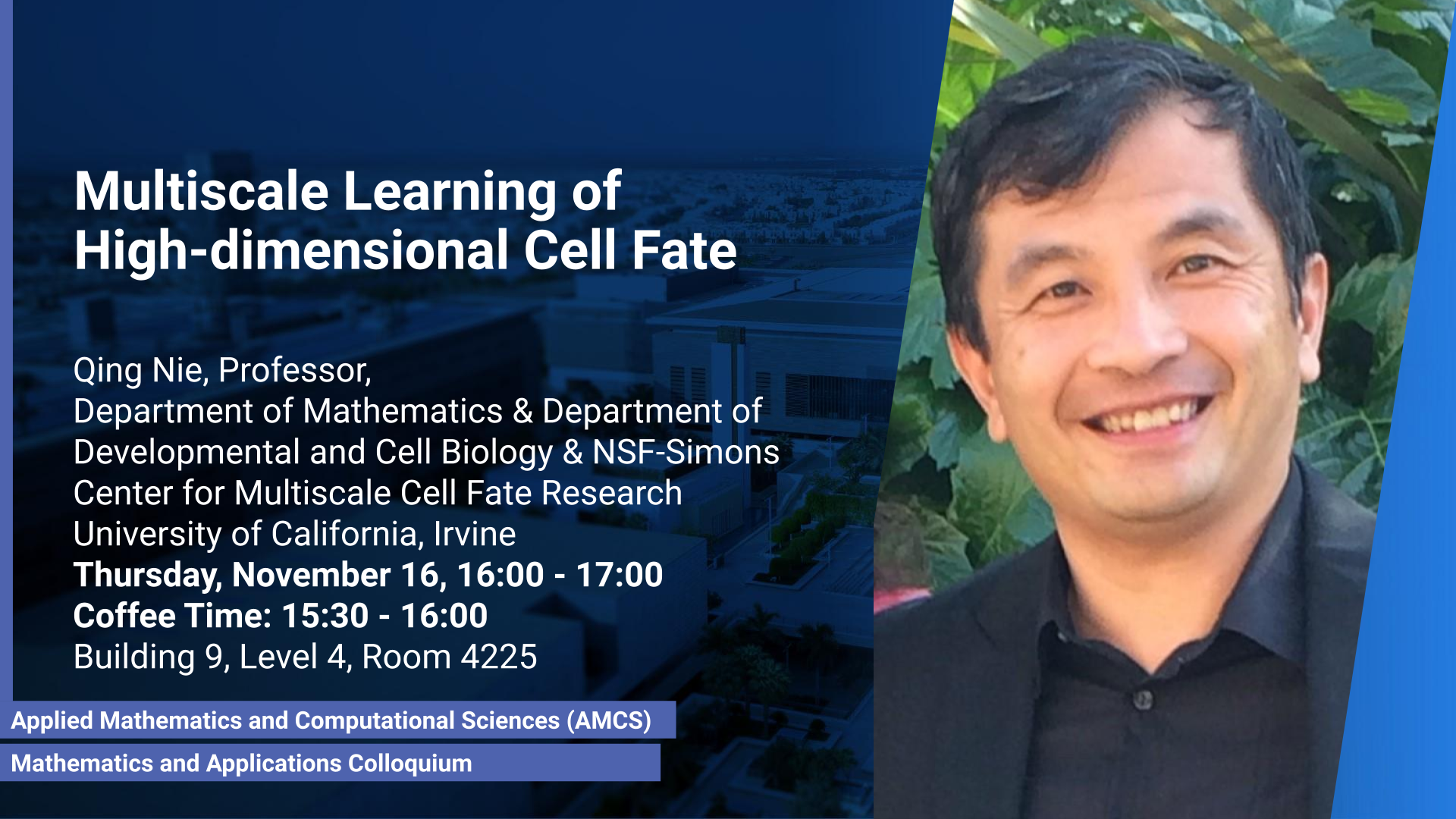Abstract
Cells make fate decisions in response to dynamic environments, and multicellular structures emerge from multiscale interplays among cells and genes in space and time. The recent single-cell genomics technology provides an unprecedented opportunity to profile cells for all their genes. While those measurements provide high-dimensional gene expression profiles for all cells, it requires fixing individual cells that lose many important spatiotemporal information. Is it possible to infer temporal relationships among cells from single or multiple snapshots? How to recover spatial interactions among cells, for example, cell-cell communication? In this talk I will present our newly developed computational tools that are mostly based on dynamical models and machine-learning methods, with a focus on inference and analysis of transitional properties of cells and cell-cell communication using both high-dimensional single-cell and spatial transcriptomics, as well as multi-omics data for some cases. Through their applications to various complex systems in development, regeneration, and diseases, we show the discovery power of such methods in addition to identifying areas for further method development for spatiotemporal analysis of single-cell data.
Brief Biography
Dr. Qing Nie is a Distinguished Professor of Mathematics and Developmental & Cell Biology at University of California, Irvine. Dr. Nie is the director of the NSF-Simons Center for Multiscale Cell Fate Research jointly funded by NSF and the Simons Foundation – one of the four national centers on mathematics of complex biological systems. In research, he uses systems biology and data-driven methods to study complex biological systems with focuses on single-cell analysis, multiscale modeling, cellular plasticity, stem cells, embryonic development, and their applications to diseases. Dr. Nie has published more than 200 research articles. In training, Dr. Nie has supervised more than 50 postdoctoral fellows and PhD students, with many of them working in academic institutions. Dr. Nie is a fellow of the American Association for the Advancement of Science (AAAS), a fellow of American Physical Society (APS), a fellow of Society for Industrial and Applied Mathematics (SIAM), and a fellow of American Mathematical Society (AMS).
